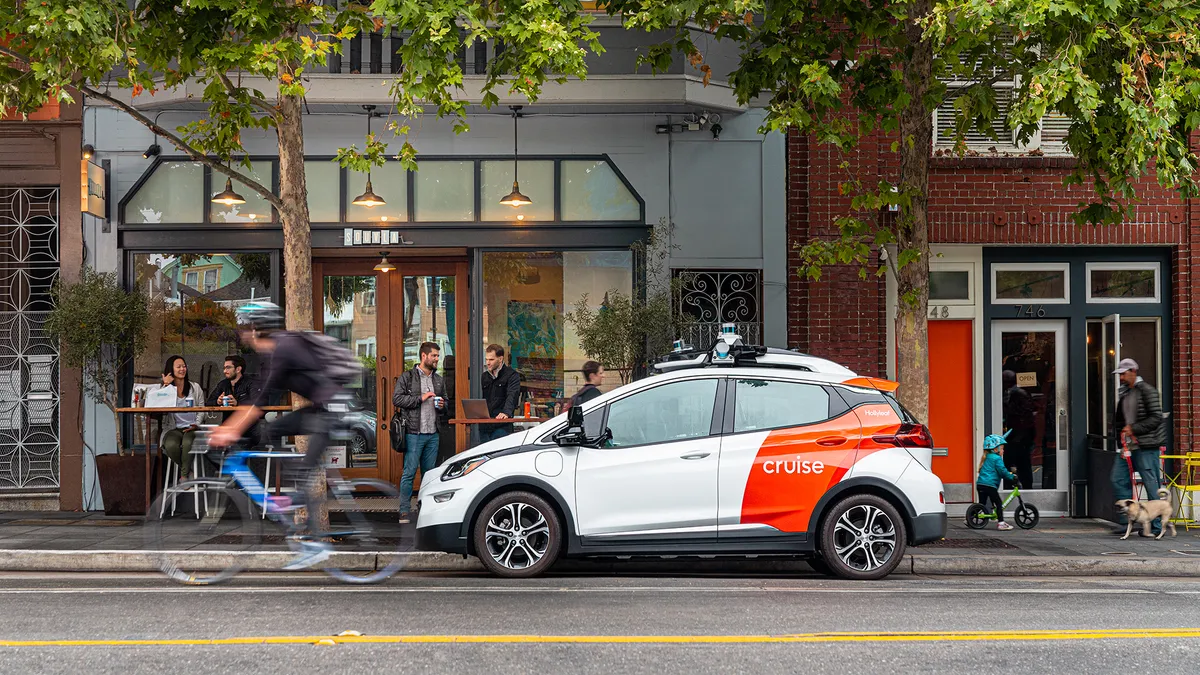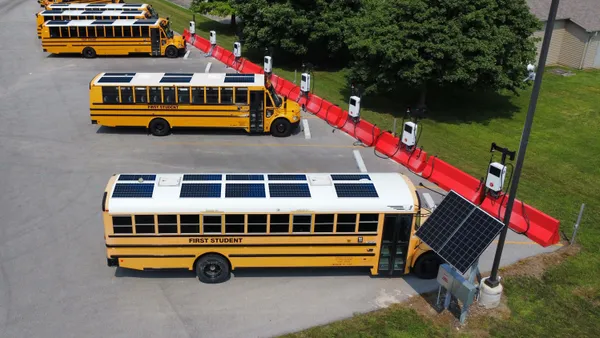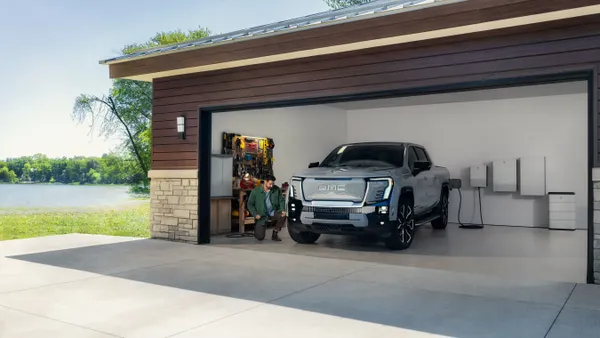Dive Brief:
- Kyle Vogt, co-founder and CEO of General Motors’ autonomous driving unit Cruise, resigned from the company Sunday, according to his post on X, formerly Twitter.
- Craig Glidden, executive vice president of legal and policy at GM, Cruise’s chief administrative officer and a Cruise board member, will now serve as Cruise's co-president, according to an email sent by GM CEO Mary Barra to employees and reported by Reuters.
- Mo Elshenawy, executive president of engineering and co-president at Cruise, will become the company’s co-president and chief technology officer, according to Barra’s email.
Dive Insight:
For the past several years, Cruise has been testing its self-driving vehicles in San Francisco and other U.S. cities in preparation to launch a ride-hailing service that’s similar to Uber.
In June 2021, Cruise was the first company granted a permit from California’s Public Utilities Commission to provide passenger test rides in its self-driving vehicles without a safety driver behind the wheel. Cruise was also one of only four companies, including Waymo, Mercedes-Benz and Nuro, that was granted a permit from California’s Department of Motor Vehicles to deploy its robotaxi vehicles on public roads in the state without safety drivers onboard.
The Cruise robotaxi fleet includes Chevy Bolt EVs and the Cruise Origin shuttle, which was co-developed with Honda. In February, the Detroit News reported GM planned to deploy 5,000 Origin shuttles nationwide.
Last month, Cruise and Honda announced plans to establish a new joint venture company to launch a driverless ride hailing service in Japan starting in early 2026.
But Cruise’s fleet of robotaxis was grounded in California last month while state regulators evaluated their safety after one of the vehicles struck a pedestrian in downtown San Francisco in early October. The incident resulted in multiple investigations surrounding the safety of Cruise’s self-driving vehicles.
In addition, the National Highway Traffic Safety Administration opened a preliminary evaluation of Cruise’s autonomous vehicles following reports of pedestrian injuries.
In the email reported by Reuters, Vogt wrote, "As CEO, I take responsibility for the situation Cruise is in today. There are no excuses, and there is no sugar coating what has happened. We need to double down on safety, transparency, and community engagement.”
GM invested heavily in Cruise over the years, which Vogt co-founded in 2013. In 2016, the automaker invested roughly $1 billion in the company when it was still a relatively unknown startup working autonomous driving technology. Then in March 2022, GM acquired SoftBank’s $2.1 billion stake in Cruise. The company’s investment aimed, in part, to jumpstart its own work on self-driving technology.
Barra told investors Cruise could generate $50 billion in revenue by 2030, according to Reuters.
“The last 10 years have been amazing, and I’m grateful to everyone who helped Cruise along the way,” Vogt posted on X. “The startup I launched in my garage has given over 250,000 driverless rides across several cities, with each ride inspiring people with a small taste of the future.”
Last week, Cruise announced that Glidden would expand his role as chief administrative officer for Cruise to help support the company as it deals with numerous safety probes. At the time, Cruise said Glidden would work closely with Vogt and other senior leaders on transparency and community engagement at Cruise.
But after Vogt’s sudden resignation Sunday, Glidden will now serve as Cruise's co-president along with Elshenawy, Reuters reported. In addition, GM director and former Tesla President Jon McNeill was named vice chairman of the Cruise board alongside Barra, who serves as chair.
"We continue to believe strongly in Cruise's mission and the potential of its transformative technology as we look to make transportation safer, cleaner and more accessible," Barra said in the email.












